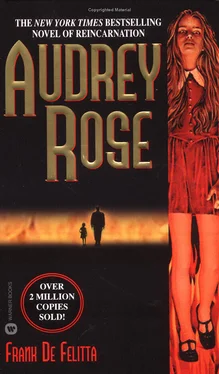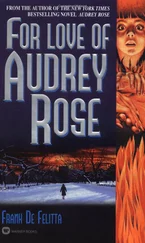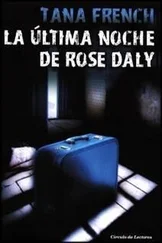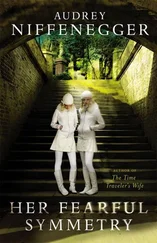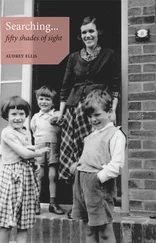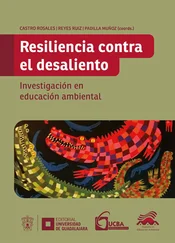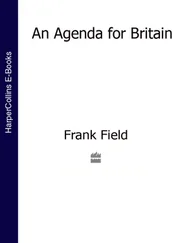That, perhaps, is the most important thing I discovered in Benares—that time is unimportant.
The way that woman launders her clothes is as pious an act as that man who hasn’t stopped looking at the sun. I don’t know, I might be getting far afield of reality. Perhaps it’s just a poetic way of seeing a life-style that is totally new and different to me. Or maybe there is indeed that poetry here in the sounds and vibrations of work and religion.…
Reincarnation here seems a fact of life.
Destruction, which confused me at first, which caused me to wonder why there was a temple for a goddess who was the consort to the god of destruction, is an equal fact of life.
Destruction and creativity go hand in hand. As I look around me, I see temples and homes that are lopsided, I suppose from the floods during the monsoons, and practically falling into the river, held up by the river. And once again, the idea of destruction—of life persisting, of life continuing, of life fighting on in the midst of all this destruction—seems to pull me toward an understanding of a basic truth, as yet unclear to me. And in trying to define this basic truth, I’m brought back to all the reading I did back in the States. The reading that didn’t make sense there but that now, in view of all that I see around me, must become a whole new education.
I will start by staying here in Benares, the seat of the Hindu religion, using my knapsack as a pillow if I must and continue to watch these cremations to understand why death can be considered a holiday. And what they are celebrating. If it is the final death, if, as that old man said to me, he is not to be reborn again, then what he is celebrating is God. Union with God. But if he has not yet got to that point, then what he is celebrating is another chance toward union with God, a closer step.
It was here that Hoover forsook pen for pencil, which made the going extremely rough.
I’ve come across a student who speaks little English and whom I am now fortunate enough to share my thoughts with. He explains to me that in Buddhism the problem of true knowledge arises as a personal problem, and this is why Buddha sat and meditated and finally arrived at the truth. This is very important for me to understand because it is just that which compelled me to come to India. To personally find the way to truth.
So much of what I’m saying now began in conversation back and forth between my new friend Sesh and myself. A little corny, perhaps, but he teaches me some of his language, so I will teach him some of mine. He wears a
safa,
a cloth head covering that is wound around his head loosely to protect him from the sun’s heat, since he remains outdoors most of the time. He also wears the
lengha,
the trousers that look like pajamas, and he has given me a shirt called the
paharen.
When I tried to thank him for it in my effusive Western way, he became very upset and walked away, and I didn’t see him for at least an hour. I thought I had lost my friend Sesh. He returned then and told me that to thank someone for something is to take away part of the act of giving. I am learning so much each day.
As I think of the noble truths, the Eightfold Path, I am chaotic in my joy, yet even that joy must be pushed in a direction, an order, a balance toward evolution.
In a way, the destruction of my wife and child was almost a reconstruction of me. The fact of their death, of Audrey Rose’s death, in all her beauty and her joy, set me into a dying cycle and forced me to reexamine our lives together. If I believe in God, as these people do, then I must believe that somewhere along that noble Eightfold Path, I failed. I failed and, in doing so, polluted the environment around me. In some way or another, I destroyed the order, and so the imbalance made something as lovely and wondrous and bright as Audrey Rose’s spirit incapable of surviving around it. Am I accepting blame? I don’t know yet.
When I look at Sesh and the time he’s taking with me, I realize that what these people want is to do good. And if I can prove God and reincarnation to myself here, as Buddha did to himself, if I can find a creative way of life, then it is because I want to do good. If the souls of Sylvia and Audrey Rose are in pain, then I must do good for their souls. If I can do this little, I will have done a great deal toward getting them closer to the cycle of bliss which is their right.…
The small, thick writing swam before Janice’s eyes, and she was forced to rest them a moment before continuing. Flipping to the next entry, she found that matters hadn’t improved; if anything, the shape of the words were even more blurred.
Sesh and I walk to Sarnath, the center of the Buddhist world, because it is at Sarnath that Buddha preached his first sermon, and we are going to see where it is partially recorded on a stone. It is here that he revealed the Eightfold Path that leads to the end of sorrow, the attainment of inner peace, enlightenment, and ultimately, Nirvana. It is here that he established his doctrine of the middle way, which is the golden path between extremes of asceticism and self-indulgence.
He came upon four great truths. Suffering is universal. Cause of suffering is craving or selfish desire. Cure is the elimination of craving. And the way is to follow the middle way. A path of practical action. To do this, we have the Eightfold Path which is: Right knowledge. Right intention. Right speech. Right conduct. Right means of livelihood. Right effort. Right mindfulness. Right concentration. And the five precepts: Abstaining from the taking of life. Abstaining from the taking of what is not given.…
The writing at this point was indecipherable, and Janice could not continue. Flipping past several similarly difficult segments, she came to an entry written in pen, and her eyes felt suddenly cleansed.
I look at Sesh; no Hindi comes to mind: no English comes to mind. I see a tear in his eye, and it doesn’t even fall down his cheek. We know we have to part. We have rededicated ourselves to the need for finding truth. For we have shared a desire for life, a need for absolution, a need to understand reincarnation in order to love God. We have given each other that gift.
And a few pages later, still in pen:
I walk for many days. I walk because I know I have made a commitment now to live out something in daily deeds that before was just an ideal.
I find something else, too. I find that in walking, I am becoming very aware of my body, its needs, what I can do without. I can now go without food for a while, but I cannot go without truth and faith. That is my joy right now. And I am hurting my feet, and my back is tired. I am not used to this, but it’s forcing me to become very cognizant of this flesh that is carrying me through God’s world. To figure out why I am housed inside this flesh, to understand the idea of the soul occupying the body, rather than the soul having a body, which is what I used to believe. And in this walk I’m learning that we are in eternity. Eternity is here with us now.
And a page later:
As I walk, I see in front of me a small girl with long black hair, almost to her ankles, pulled back in a braid, huge eyes, a bit downcast, a tight little white shirt, and a bright, bright shawl, green and orange and pink, over her. She has a basket with her, and as I get closer, I see there is nothing in the basket. I have half an orange left. I give it to her, and she gobbles it up.
She says, “Prana,” which I know to mean “breath.” So I take it to be her name. I say to her, “Prana ji,” which I have learned is the endearing suffix to add to a name. As we walk, she sings. I can’t tell if there are words to the song.
She leads me to her family’s house. As we are nearing the house, I see buffalo, I see the water tank which is in so many villages. The water tank, artificially built, looks like a pond. I see a very old lady walking with a brass pot on her head, walking to the tank, and I see a robust man with a curly black beard. He has two chairs on his head. They stop what they’re doing, and they look at me. The man puts the chairs down. I don’t know what I’m going to say, and he leads me into the house. As he does, I’m glad that I remembered to take my sandals off. I’ll probably never put them on again. The man, who seems to be Prana’s father, says to me, “Amdhu,” and holds out his hand. I take it and we shake, and I say, “Elliot,” and he says to me, “
Читать дальше
